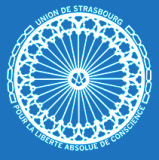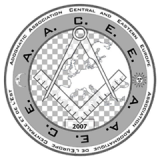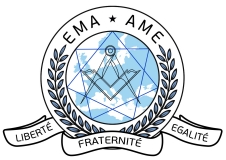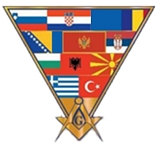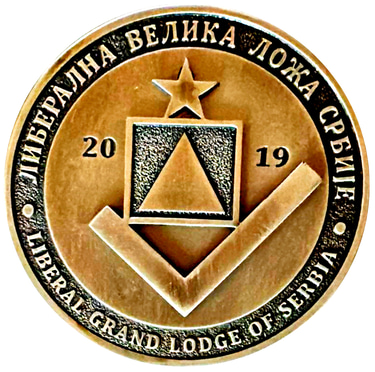Two Concepts of Freemasonry
During the three centuries of its existence, freemasonry in the world developed in two different directions. One represents the Anglo-American Masonic tradition, led by the United Grand Lodge of England (UGLE) and prevalent in most Grand Lodges in the United States, Canada, Australia, and New Zealand.
The second direction represents the European liberal Masonic tradition led by the Grand Orient of France (GOdF) and prevailing in most liberal Grand Lodges and Grand Orients in Europe, Africa, and Latin America.
There are several different names for these two directions or concepts of Freemasonry, depending on which side they come from. Anglo-American Freemasons call themselves "Regular" Freemasonry, while European Liberal Freemasonry they call "Irregular" and accordingly do not recognize and have no friendly relations with Liberal Masonic obediences.
On the other hand, liberal freemasons call themselves liberal, European, or continental, and adogmatic freemasonry, in contrast to Anglo-American freemasonry, which they call dogmatic or religious.
The main difference between these two directions is as follows:
1. "Regular" Freemasons require an applicant for membership to declare his belief in God and the immortality of the soul before his application will be considered. Liberal Freemasons do not have this requirement.
2. In the Lodge of Regulars, it is mandatory to have an open Book of the Holy Law (Bible, Koram, etc.) while working on the Altar. There is no such obligation in the Lodge of Liberal Masons. Which book will be on the altar depends on the joint decision of the members of the Lodge. It can be the Constitution of the Grand Lodge, the Book of the Holy Law, the Book with blank leaves, or some other book following the Freemason ethical principles and rules of the Grand Lodge.
3. Work in a regular lodge is done "in Glory of the Grand Architect of All Worlds." while the work in the liberal lodge is done for "Liberty, Equality and Fraternity."
4. Regular Masonic Lodges accept only men as members and do not recognize women Masons, while liberal Lodges can be male, female, and mixed and mutually recognize each other.
In addition to these two main directions of development, there is a large number of dogmatic Jurisdictions, which, like the Anglo-American Freemasons, require faith in God, the presence of the Book of the Holy Law on the altar, and accept only men as members, but unlike the Anglo-American jurisdictions, they recognize and have friendly relations with liberal Masonic jurisdictions, including women's Grand Lodges. Because of their friendly relations with liberal Freemasonry, these Jurisdictions are not recognized by Anglo-American Freemasons who call them "Irregular". Most of these Jurisdictions are in Latin America and Africa.
The schism in the world Freemasonry community did not occur suddenly, but happened gradually and for several different reasons. The first case of derecognition occurred in the United States shortly after the American Civil War. In 1869, the Grand Orient of France (GOdF) recognized a Masonic group in Louisiana (made up of African-Americans) that was not recognized by the Grand Lodge of Louisiana (GLL). The Grand Lodge of Louisiana took this as an invasion of its jurisdiction and withdrew its recognition of the Grand Orient of France. At the request of the Grand Lodge of Louisiana, several other American Grand Lodges also withdrew their recognition. Shortly before this conflict, the Grand Orient of France passed a resolution stating that "neither color, race, nor religion shall disqualify a man for initiation," which did not please the Grand Lodge of Louisiana, which was strictly against the admission of blacks. and those of mixed race. The initial schism was not unanimous in the US; most American Grand Lodges continued to recognize the Grand Orient of France until the middle of the 20th century.
The schism widened in 1877 when the Grand Orient of France changed its Constitution regarding belief in God and the presence of the Book of the Holy Law in the temple room. While the Anglo-American Masonic tradition requires the candidate to profess faith in God, the Grand Orient of France removed that requirement, stating that the Masonic tradition "enjoins that all men, without distinction of class, origin, or denomination, be given the means to be themselves, to have freedom of choice, to be responsible for their own maturity and masters of their own destiny.” Likewise, the presence of the Book of the Holy Law is left to individual Lodges to choose.
The second major issue that contributed to the complete break between English Freemasons and the Grand Orient of France concerns the higher degrees. The English, Irish, and Scots did not at all approve of the numerous rites and higher degrees practiced in Europe and the superior position of the Grand Orient of France which administered those rituals. When the final change in the Constitution of the Grand Orient of France took place in 1877, the United Grand Lodge of England and the Grand Lodge of Ireland sent a joint letter to all other jurisdictions, informing them that they no longer recognized the Grand Orient of France and proposing that they do the same. Since then, any jurisdiction that practices a liberal form of Freemasonry has been called Irregular and, as such, not recognized by the regular Grand Lodges of Anglo-American orientation as a Masonic organization.
After the "Conference of Grand Masters of the United States," the "Recognition Information Commission" was established in 1952 and the standards for the recognition of obedience became even stricter. Most Grand Lodges have accepted that any Grand Lodge which has established relations with the Grand Orient of France or any other jurisdiction in friendship with the Grand Orient cannot be recognized and is called "irregular". This decision finally influenced the remaining Anglo-American jurisdictions that had not severed relations with the Grand Orient of France to do so. Many regular Grand Lodges in Latin America and Africa ignored this attitude and continued with the recognition of the Grand Orient and other liberal Jurisdictions. According to some authors, this decision of the Conference of Grand Masters of the United States was certainly a reaction to the socio-political developments in France after the Second World War. The influence of the Grand Orient of France, where the discussion of social and social issues is an integral part of the work of the Lodge, has been significant in French society. The desire of many in France to distance themselves from American influence in Western Europe has often been attributed to the influence of France's Grand Orient.
It can be said without doubt that the split comes from the socio-political conditions in which Freemasonry developed in the Anglo-Saxon countries and Europe. The original concept of Speculative Freemasonry comes from Anderson's Constitution, as well as the rules and regulations of early English Freemasonry. The most important principles and requirements, as interpreted by Anglo-American Freemasons, are that the candidate for Freemasonry believes in the existence of a Supreme Being; that the open Book of the Holy Law be displayed on the altar while the lodge is working; political and religious topics cannot be discussed in the temple room; women are not allowed to join. The only object of Masonic work is man with his inner being; for a good man to become better in accordance with higher moral principles and in order to come to the realization of the absolute truth about God and our existence. It is believed that such a person will be a better and more productive member of society and that the benefits of his moral rise will reach far beyond his immediate environment. Freemasons should always follow the three great principles of brotherly love, mercy and truth. Brotherly love is defined as an expression of respect and tolerance for the opinions of others and as kindness towards one's neighbors; mercy is the constant exercise of mercy; truth is a symbol of the eternal search for absolute knowledge.
Liberal Freemasons believe that with their practice they are not deviating from Anderson's Constitution, but that it is only a matter of broad understanding and philosophical approach to the concept of Freemasonry regulated in Anderson's Constitution.
When liberal Masons say that they do not require a candidate to express belief in God and in the immortality of the soul, it does not mean that the candidate does not believe in God or in the immortality of the soul, but only that the question is not asked of the candidate because his faith is his private matter.
Some "regular" Masons will also say that this opens the doors of Freemasonry to atheists and communists, i.e. people who do not believe in God. There were and are members of liberal Masonic allegiances who are Communists by conviction. Probably the most famous among them is Fred Zeller, former Grand Master of the Grand Orient of France who as a young French communist was a close associate of Leon Trotsky. The fact that he was a Communist by political conviction did not prevent him from being one of the most fruitful Grand Masters of the Grand Orient of France who did much to develop the social involvement of Freemasons of the Grand Orient of France. His book of memoirs "Three Points - that's all" (Trois points c'est tout) is one of the most significant books of contemporary Masonic literature.
Here we should not forget that belief in the existence of God does not automatically make us moral or good, just as disbelief in God does not automatically make us immoral or bad. The concept of God is not an ethical category. It is a theological philosophical statement about the structure of everything that exists. There is no human being who does not have some faith - believing that God does not exist is also a kind of faith - faith (in the non-existence of God). Some theorists even go so far in logical speculation as to claim that disbelief in God is the best proof of God's existence. According to them, the existence of something that does not exist cannot be denied. Philosophically speaking, those who (like communists) say they don't believe in God but believe in "man" are often much closer to God than those who only formally express their belief in an (abstract) God.
When it is said that it is not obligatory to have the Book of the Holy Law on the altar in the Lodge, it does not mean that the Bible must not be on the Altar, but that it is a question of the democratic decision of the Brethren of the individual lodge which book will be kept on the Altar, as a symbol of one of the three great lights of free masonry. It can be the Bible, the Koran, some other Book of Holy Law, the Constitution of a Grand Lodge, even a Book with blank pages, or any other book that is in accordance with the ethical principles of Freemasonry and the legal regulations of a given Grand Lodge.
It can be concluded that the changes introduced in liberal freemasonry in 1877 actually gave more freedom in individual spiritual self-building and enabled masons to more clearly define their relationship both to God and to man. In other words, for many liberal Masons who believe in God and the immortality of the soul, their practice in the Lodge has allowed them to draw closer to their God and their faith, regardless of the fact that no one asked or required them to express their faith in God when they joined the brotherhood. On the other hand, those Brothers or Sisters who do not believe in God and who see in their Masonic work a path to moral self-building, strengthening of character and personal fulfillment, or even to general spiritual enlightenment, do not feel under the pressure of religious dogma while participating in Masonic rituals in the Lodge.
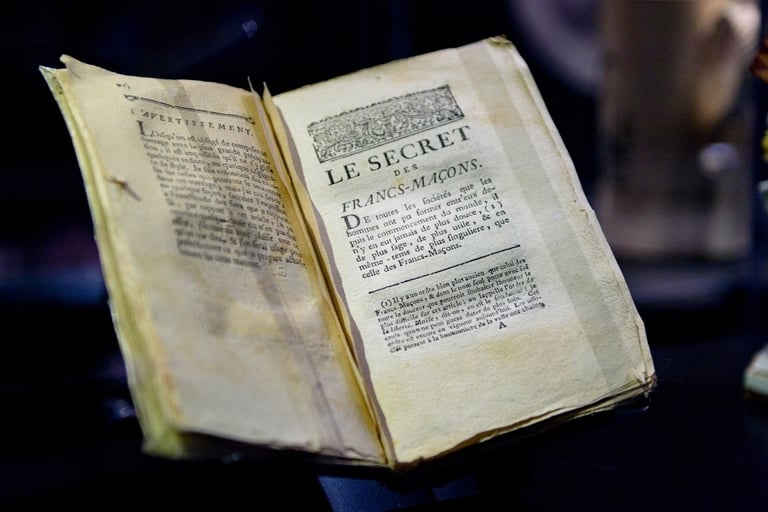

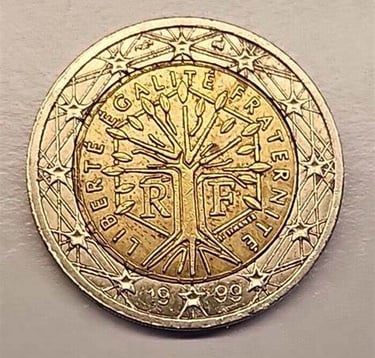

On the back side of the French edition of the One Euro coin it is written: "Liberty- Equality - Brotherhood"
Connect
office@lvls.org.rs
Liberal Grand Lodge of Serbia - All rights reserved 2023
Subscribe to our newsletter
sekretarijat@lvls.org.rs
